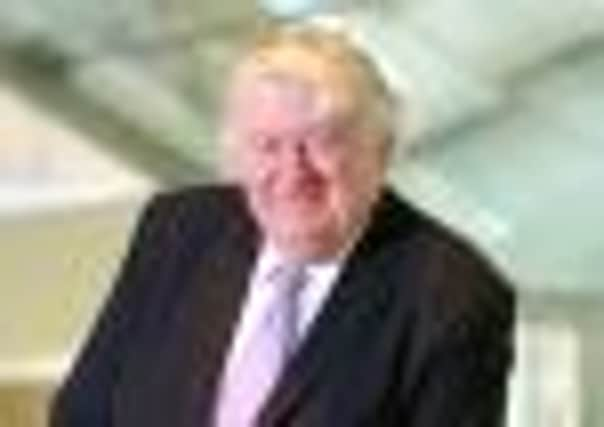John McLellan: Lack of cash keeps BBC reluctant to devolve its news


There have been gentle hurrahs from staff at BBC Scotland this week at the call by former BBC governor Jeremy Peat in The Scotsman for a national news programme tailored to Scottish needs. The absence of the so-called “Scottish Six” has long been a bone of contention, as has Jeremy Paxman’s passionate loathing of the 11pm Newsnicht switchover, but strangely the argument for devolving the main news bulletins has not been as hot a potato recently, despite the intensifying debate over the nation’s future. Maybe because attention has been on other departments in which Scotland has been seen to gain – the production of schools drama Waterloo Road in Greenock and the moving of Question Time to Glasgow.
But as more political decision-making is devolved – even under the limited proposals of the Scotland Bill – continuing with the main bulletins from both the BBC in London and ITN makes less sense by the day. As Mr Peat points out, in this day and age it should be feasible to mesh relevant London material with Scottish content without the need for Scottish viewers to waste their time with the latest GCSE league tables, although the Newsnicht handover is rarely a thing of beauty.
Advertisement
Hide AdAdvertisement
Hide AdIt certainly seems strange that someone with satellite or cable TV in Stornoway can watch the local news from East Anglia but not a full Scottish news programme, which puts national, UK and international stories in the correct context.
This week provided a good example, with BBC nationally reporting that Mark Beaumont, a documentary film-maker, was onboard the capsized boat in the Atlantic Odyssey challenge. Fortunately, BBC Scotland knew it was Mark Beaumont, Scotland’s intrepid global adventurer, who made films for none other than the BBC.
It is, as Mr Peat acknowledged, a question of resources and despite the feather bed of the £145.50 licence fee, cash is tight at Pacific Quay. No wonder former head of news and current affairs Atholl Duncan left to join the Institute of Chartered Accountants of Scotland.
Even with technological advances, a new Scottish news programme for an hour at 6pm and again for over 30 minutes at 10pm can’t be done without increasing costs and something will have to give if Mr Peat’s ambition is to be realised.
Whether axing poor Janice Forsyth from Radio Scotland on a Saturday morning will help remains to be seen, and giving listeners more sport instead is a brave decision. Still, with a 3 per cent year-on-year audience growth, according to last week’s figures, Radio Scotland is getting something right.
Rush for reform
A RAPID reform of Press regulation now looks very much on the way after Lord Leveson last week gave the new PCC chairman, Lord Hunt, the green light to drive through change in advance of any recommendations he might make at the conclusion of his inquiry. There is a determination that a new system should be in place by the spring and presumably that means by Easter, the beginning of April. The first of those big changes may be announced this week and after that the pace of reform may well be break-neck.
There seems to be growing support for a statutory framework in which self-regulation can operate and it would not surprise me if Lord Hunt brings in his civil law-based standards system, but Lord Leveson then binds publishers into it with a statutory requirement to belong. That will probably be the view of the privacy and injunctions joint committee currently looking at Press law, before which Lord Hunt gave evidence this week. It was no surprise that the members wanted to talk about PCC reform and not privacy and injunctions.
Labour’s big guns
A BIG shake-up is on the cards behind the scenes at Scottish Labour, where it is felt the party is failing to get its message across. First of all, of course, they need to work out exactly what that message is. It does look likely that the big guns from Westminster are determined to play a more active role in Scotland, so we’ll be hearing a lot more of Alistair Darling. It also means that ex-Daily Record man Paul Sinclair will have plenty on his plate as they try to halt the onward march of the SNP.